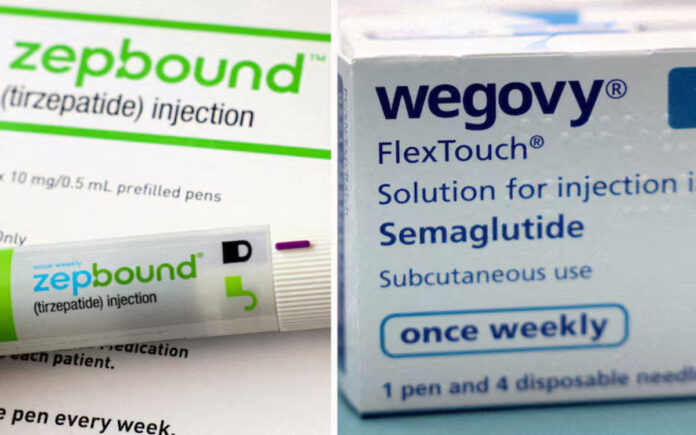Washington/New York: U.S. patients who have relied on affordable compounded versions of blockbuster weight-loss drugs from Eli Lilly and Novo Nordisk are now grappling with soaring costs and limited options, following a regulatory crackdown by the U.S. Food and Drug Administration (FDA).
For years, compounded versions of drugs like Lilly’s Zepbound and Novo Nordisk’s Wegovy filled a supply gap when the original products were scarce. These versions were significantly cheaper and widely accessible through telehealth platforms and specialty pharmacies. But with recent FDA enforcement halting large-scale compounding, many patients are facing a harsh financial reality.
According to interviews with ten individuals, the impact has been deeply personal. Some patients report they can no longer afford even the lowest available doses of the branded medications, with out-of-pocket prices ranging from $349 to over $1,000 per month, depending on insurance coverage and pharmacy availability.
“I do not have the money to be spending $350, and that’s the entry-level dose,” said Amanda Bonello, a 36-year-old Iowa resident. “It would not be easy thinking about the Christmas presents that would be missed that year and other opportunities that my family could potentially have.”
Novo Nordisk recently launched a one-month $199 offer for Wegovy, coinciding with the May 22 FDA deadline that forced many compounding facilities to cease production. But even that discount is out of reach for many. Health insurance coverage remains inconsistent, with most insurers still excluding these medications from their formularies despite their proven effectiveness in treating obesity.
Bonello, like others, has resorted to stockpiling compounded doses and rationing them beyond expiration dates. “It’s been a roller coaster, and it’s been so stressful that so many people have just stuck their heads in the sand while others have been stockpiling to prepare,” she said, noting that she began her stockpile in October 2024.
Other patients are seeking out international sources, switching providers to obtain new prescriptions, or turning to telehealth clinics for workarounds. One patient, Zach Niemiec, a 32-year-old working in Colorado’s nutrition industry, said the branded versions still don’t fit into his budget—even with discounts.
“They are still kind of leaps and bounds from where the price of compound is, and they just still don’t quite fit into my budget at this time,” Niemiec said.
Telehealth companies are also scrambling. Noom, for instance, is exploring a loophole involving “personalized dosage exceptions” to continue offering weight-loss options.
Medical experts, however, are raising red flags over the risks associated with patient-led dosing and stockpiling.
Also Read | Travel Woes Mount at Newark as Flyers Reroute to Competing Airports
“The stockpiling and trying to do your own dosing if you’re not under, and even if you are under, the medical expertise of someone, puts a lot more harm to potential issues going forward,” warned Dr. Veronica Johnson, an obesity medicine physician with Northwestern Medicine in Chicago.
In response to the concerns, a Novo Nordisk spokesperson emphasized the company’s commitment to expanding access through initiatives like its direct-to-consumer website. “Unfortunately, today people living with obesity continue to fight stigma and bias within a complex healthcare system that still denies coverage to medically-prescribed and effective treatments,” the spokesperson said, acknowledging the financial burden faced by many.
A spokesperson for Lilly echoed that sentiment, stating the company is working to improve access to Zepbound for both insured and uninsured patients. However, they also cautioned that many compounders are charging similar prices for what they called “risky knockoff” products.
With few affordable and safe alternatives remaining, patients are now faced with tough choices—between their health and their financial stability.



